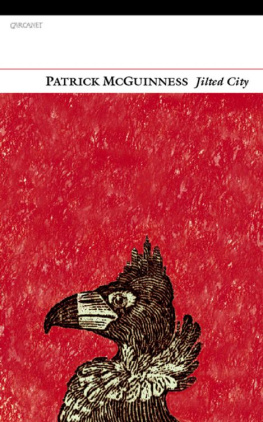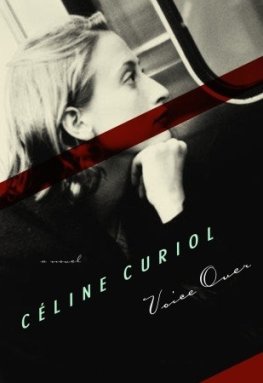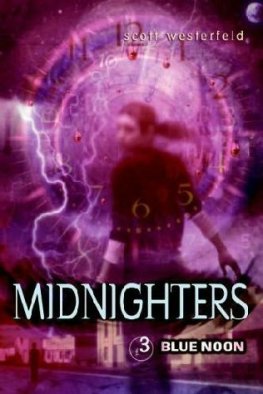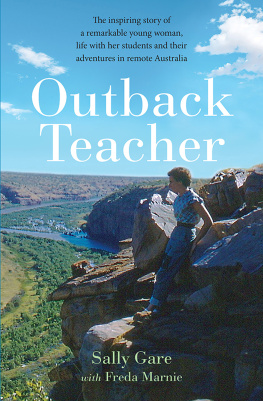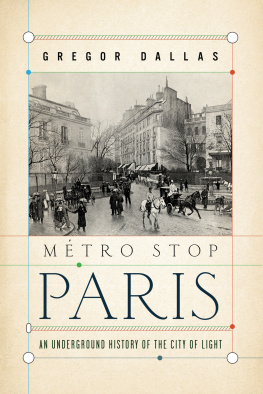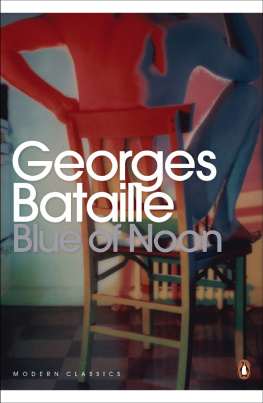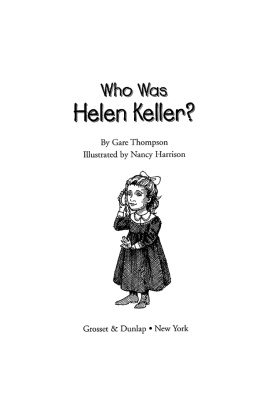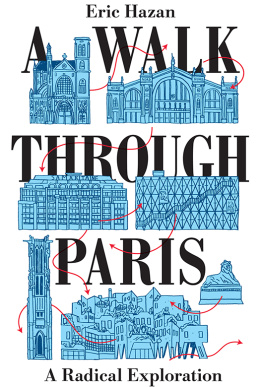In memory of my mother O mmoire, cit trahie O memory, jilted city Henri Thomas
Many of these poems appeared first in the following magazines:
Agenda, Alhambra Poetry Calendar, Archipelago, The London Review of Books, Planet, PN Review, The Times Literary Supplement and
The Yellow Nib; and in the following books or anthologies:
From the Small Back Room: A Festschrift for Ciaran Carson, edited by W.R. Irvine (Netherlea, Belfast, 2008),
Branchlines: Edward Thomas and Contemporary Poetry, edited by Lucy Newlyn and Guy Cuthbertson (Enitharmon, 2007),
The European Constitution in Verse edited by David Van Reybrouck and Peter Vermeesch (Passaporta, Brussels, 2009) and
Identity Parade: Contemporary British and Irish Poetry, edited by Roddy Lumsden (Bloodaxe, 2010). Dja-vu appeared as a Treganna Press poetry card, with a cover image by Alun Hemming, whose Urban Vulture provides the cover for this book. Several of these poems also appeared in the pamphlet
19th Century Blues, which was a winner in the Poetry Business competition in 2006 and published by Smith Doorstop in 2007. I am grateful to Peter Sansom and The Poetry Business for permission to reprint it here. A broadsheet entitled
Montreal and Other Poems appeared in the San Marco Press Five Poets series in 2006, with an Italian version of the title poem by Barbara del Mercado.
The sequence Blue Guide also appears in French, in a version by Gilles Ortlieb, in the review Thodore Balmoral. I am extremely grateful to Jennie Feldman for letting me use her inspired rendering of the line from Henri Thomass poem Audides as the epigraph to this book, and letting me have Jilted City as the title. The rest of the poem can be found in Into the Deep Street: Seven Modern French Poets 19382008, edited and translated by Jennie Feldman and Stephen Romer (Anvil, 2009).
Contents
Two tenses grappling with one instant, one perception: forgotten as it happens, recalled before it has begun.
Azur! Azur! Azur! Azur! Mallarm
in memory of Malcom BowieAzure! Azure! Azure! Azure! all that was before: before we rode it in planes or used it to park satellites, or as ethereal landfill for our emissions. All the best skies these days are polluted: jet-fuel-refracted intricacies of dead air and carbon-dazzle, cyanose confetti that we mistake for light as we mistake mirrors for what they show us of ourselves.
But the thought of all that emptiness, its promise of fresh starts, persists and though aftermaths look much the same we never think of them as happening in the sky. We never think of them as starting in the sky: only beginnings are possible in such virgin air, we think, harvesting new breath from frictionless blue fields, those oxygen plantations with their Boeing ploughlines and their furrows of weightless tilth. But each square of it is Heathrow or JFK, tailbacks of landing lights, control-tower static, log-jams of conditioned air and shredded cumulus. First breath, first light: the original repetitions, and the sun all the more intricate in its dying back for the furnace it was at the beginning. And its beginnings that we dream of as we observe the blue, the great illusion that every day it starts again, from zero, that perfect world shaped formula for all or nothing: O
In Monets
The Beach at Trouville, it is week one of the Franco-Prussian war. The chair lodges in the sand between two women.
One reads, the other points her face at the emptying beach. The chair belongs to no one, it is a found chair, a trouvaille, and there is never one chair too many but one sitter too few. A flag rigid on its pole indicates a swelling in the air, or something stronger, and the rent waves, delicate turmoils of spume and lace, are distant cousins of the revolution bound into the ebb and flow it breaks free of, then breaks back into. There is sand in the paint; the place is mixed into its making and even the brushstrokes replicate the waters peaks as they take the light: roofs pell-mell across a city skyline, flashpoints in the sun. The chair suggests all that can be suggested about change, but it remains apart from it: the way a sail suggests the wind, the way a shell holds a recording of the waves even as the waves turn around it.
for Christopher RicksFrom here the river looks like a road surprised by its own keen swerve, the boaters stitching the waters skin as above them a Boeing rends the sky and the sky heals over.
Its all inaudible through the triple glazed panes, but by something in that improbable clear blue we know its heavy with noise, drenched in spent jet fuel, and the bright blue emptiness is emptiness only, a desert of burned-off ozone where the suns ferocious waste scatters its perfect, equalising light. Shadows straighten up, level with the shapes that threw them house, high-rise, Hummer then disappear; and for a moment all is its original, unencumbered self. The clocks hands cross. The two halves of the day come face to face. The grainy, detailed hours have reached their zenith, now they fall away.
Dust knows the places we have forgotten, or we never see, marking out the margins of our world: the window ledges cracked paint, the bevelled edges of a door frame, the dado rails, the skirting boards, stifling the emphatic corners of our lives.
It fills the gulf behind the sofa, that small domestic void that stands for losing and forgetting, or for finding once again. It stands for things that outlive their necessity; for us busily outliving ours particles slow dancing in a shaft of light shedding the excess that each day we renew. Its tininess is a feat of scale, but it cannot disappear. It is the shape of nothing, the shape of nothing happening, and of nothings impossibility; matter worrying away at trying not to be, and being all the while; reminding us there are no absolutes, that all is graded on the scale, that all is incremental, deciduous, and undecided.
Teaching it to my children I think of it now as my mothers tongue if not, any more, my mother-tongue. Its freighted with a kind of loss; hers, mine, and what she lost as she passed it on to me, continents away from where she started: shot through with gaps, mothballed and moth eaten at once, the smell of preservation neck and neck with the smell of death.
Lying for years in the cellar, it fattened up, grew milky, slow, echoed in my mouth as in a tunnel of its own disuse. Then, like drinking from the source, came our annual summers in Bouillon, where our Belgitude rose up in us like the damp behind the wallpaper in the house that stayed unused nine months out of twelve: its empty rooms, lost cupboards, the stored-up junk piled up so long that each forgotten item now dovetailed into the next, a perfect carpentry of abandonment; it was the tongue and groove of unused words, life in suspension, ready to rise again like dust in the backdraft from a closing door. Theres something in it when I use it here brings back those moments when, mid-play, Id nip indoors for a piss or for a sandwich and when I came back out the other children were all gone, the courtyard empty, the toys back in their boxes and the sky already crossed with evening; brings back the knowledge, always wrong but always knowledge, that there would never be another time than this, this ending-tainted perpetuity. Now my children taste it, the empty-courtyard French I used to speak; they push their tongues along the language and as I hear their words snag I hear my own again and wake from that recurrent dream in which Im always waking up, and break off that aborted first line of my story which Im always starting: that Im much younger and still Belgian.

